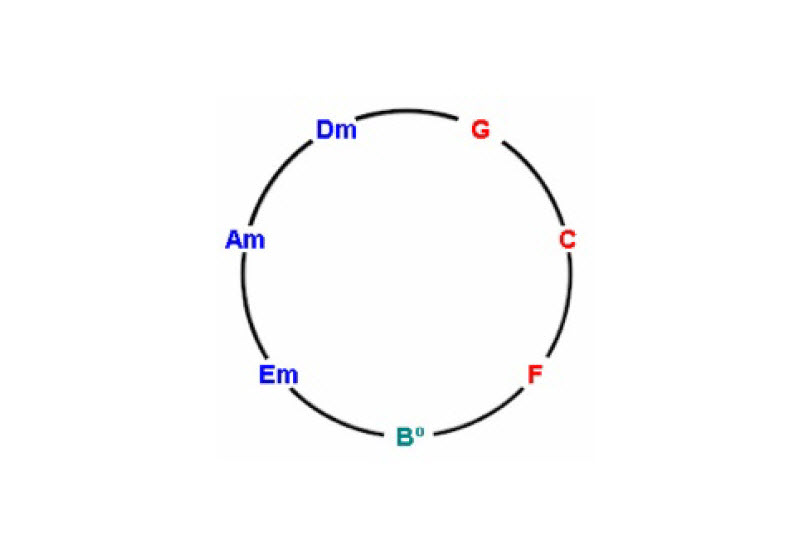You Are Reading the First 6 FREE Chapters (470 pages)
6.6.6 Circle Progression, Key of C Major/A Minor
How does it feel
How does it feel
To be on your own
With no direction home
Next, try an example. Replace the Nashville Numbers with the chords of a representative key—actually a pair of relative keys— and try out this "first draft" of the circular harmonic scale. Use the keys of C major and A minor (Figure 48):

FIGURE 48: First Draft of the Circular Harmonic Scale, Key of C Major / A Minor (Same as a "Circle Progression")
So far, so good. But this version of the circular harmonic scale needs some work.
If you play the chords of the above version of the circular harmonic scale clockwise, starting from C major and ending with C major, your brain senses natural, directed harmonic motion. Although the progression doesn't sound quite complete, it is definitely “going somewhere.”
At this incomplete stage, the circular harmonic scale is identical to what is known as a circle progression. But a circle progression has serious problems, which we'll get to shortly. We need to move on and tweak the above version.

